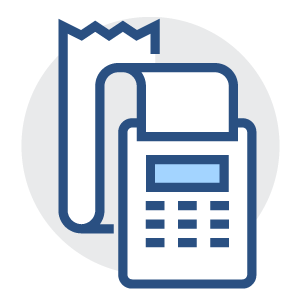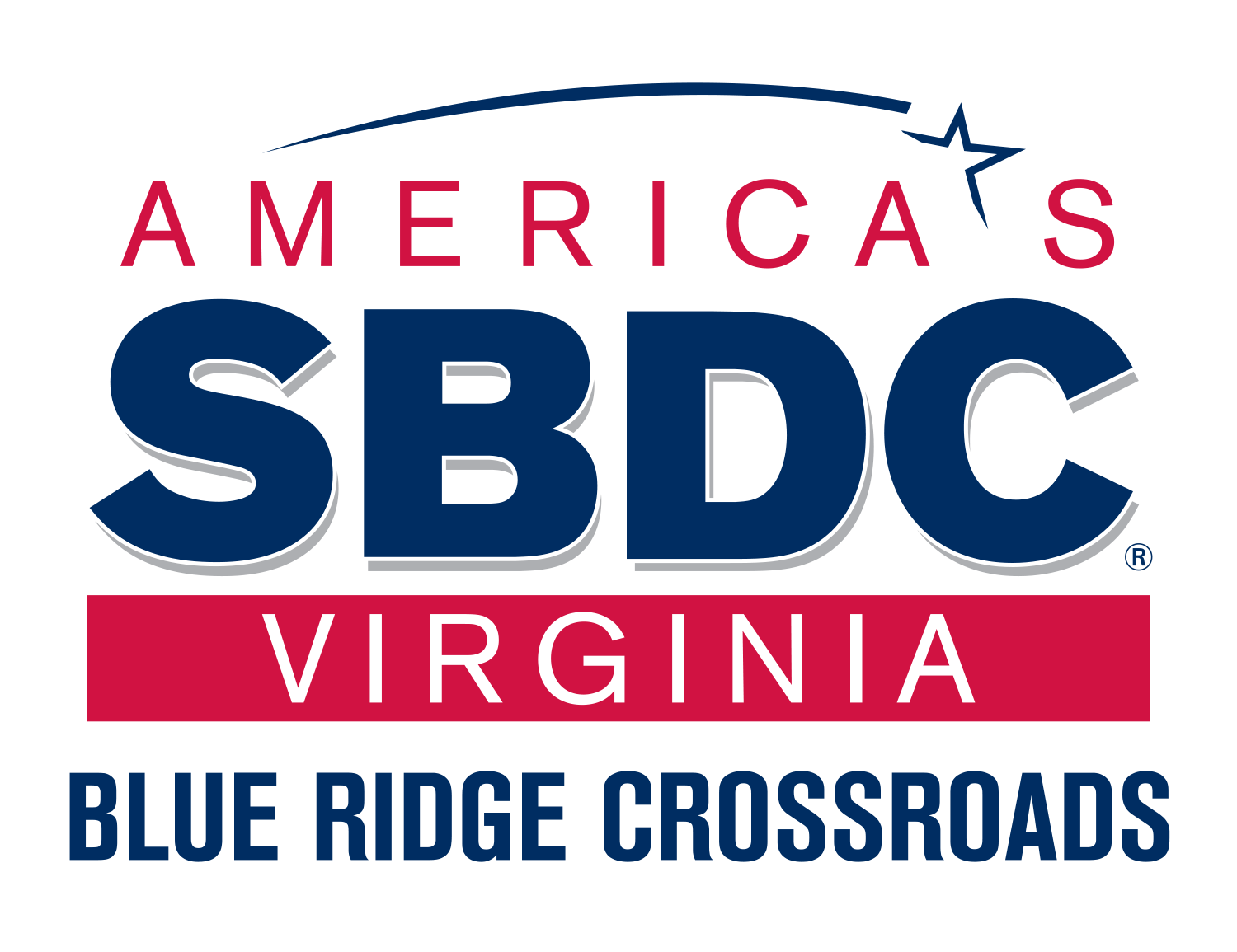Business Resources

Starting a New Business
While that might sound daunting, do not let it discourage you! The more understanding and expertise you have in your area, the better prepared you will be.
No matter what stage you are at in starting your business, Blue Ridge Crossroads SBDC can assist you with planning. The SBDC has the business knowledge you need to build on your effort and entrepreneur ideas. Our services are confidential and free of charge.
We provide assistance to aspiring business owners who need to understand:
- Requirements for going into business
- Licensing and regulatory information
- Financial statements and cash-flow management
- Accounting and record keeping
- Target markets
- Advertising and promotion
- Sales and distribution
- Business plan development and implementation
Let us help you in your entrepreneurship—contact us today!
Financing Your New Business
When looking to start or expand a business most entrepreneurs will need to secure financing. While the Blue Ridge Crossroads SBDC does not provide financing, we have counselors who can help you:
- Evaluate your lender readiness
- Identify sources of financing
- Prepare financial projections
- Analyze financials and compare to Industry Standards
- Work with lenders through the financing process
Unfortunately, grant monies are usually not available, with a few exceptions of high technology businesses. For additional assistance visit the U.S. Small Business Administration or Grants.gov websites.
To learn more about financing your business, contact our office to request a no-cost, confidential consultation today!


Marketing
COVID-19 brought with it a myriad of changes in the commercial world. Business owners are having to pivot their marketing strategies to adjust to the changing business landscape. Our business counselors are ready to help you navigate the shift in consumers’ priorities, discover emerging marketing opportunities, and develop your plan.
We can provide assistance with:
- Marketing plan & budget
- Digital marketing
- Content strategy
- Social media
- Impression management
- Customer acquisition and retention
- And much more
Let us help you re-energize and renew your marketing plan—contact us today!
State and Federal Contracts
What can we help with?
Determining Suitability for Contracting: The government marketplace poses unique challenges that can overwhelm or even ruin a company that does not have the maturity or resources to meet them. A SBDC counselor can help you determine if your company is ready for government opportunities and how to best position yourself to succeed.
Securing Necessary Registrations: Your SBDC can help make sure you are registered with the various databases necessary for you to participate in the government marketplace, including GSA’s System for Award Management (SAM), the SBA’s Dynamic Small Business Search, and other government vendor databases.
SDB, 8(a), HUBzone and other certifications: Certain small businesses are eligible for preferred status in some government solicitations. A SBDC counselor can help you determine if your company is eligible for any of these certifications and guide you through the steps necessary to secure them.
Marketing: Identify which offices and individuals are most likely to need your product and what is the best way to connect with them.
Researching Procurement Histories: “What agencies have bought products like yours in the past? Which companies have been awarded these contracts? How much have they been paid?” Answers to questions like these are necessary to guide your marketing strategy and give you a competitive edge.
Contracting Opportunities for VOSBs and SDVOSBs
If you are a Veteran or Service Disabled Veteran entrepreneur, you will need to understand the programs and preferences in place to support your participation in federal government contracting. There are two distinct programs that provide agencies authority to set aside acquisitions for exclusive competition among Veteran-owned small business concerns:
The government-wide Service Disabled Veteran Owned Small Business Concern Program, and
The VA’s Veterans First Contracting Program
Basic eligibility requirements for both of the Veteran-owned Small Business programs are set by the US Small Business Administration (SBA) in the Code of Federal Regulations (CFR) 13 C.F.R. § 125.11-125.16. However, the manner in which a Veteran owned business is “certified” under the two programs is considerably different. Details on each of the programs can be found below.
Basic Eligibility: To be eligible for set-asides as an SDVOSB, the following criteria must be met:
The Service Disabled Veteran (SDV) must have a service-connected disability as determined by the VA or Department of Defense (DoD)
The SDVOSB must be small under the North American Industry Classification System (NAICS) code assigned to the procurement
One or more Service Disabled Veterans must unconditionally own 51% of the business, control its management – including long-term decision making – and daily operations, AND hold the highest officer position (or in the case of a veteran with permanent and severe disability, the spouse or permanent caregiver of such veteran).
There is a rebuttable presumption that a service-disabled veteran does not control the firm if he/she is not able to work for the firm during the normal working hours and live within a reasonable commute to the firm’s headquarters and/or job-site locations.
Ownership by one or more service disabled veterans must be direct ownership. A concern owned principally by another business entity that is in turn owned and controlled by one or more service-disabled veterans does not meet this requirement
SBA’s Service Disabled Veteran-owned Small Business Concern Program
The Service-Disabled Veteran-Owned Small Business Concern (SDVOSBC) Program was developed to help agencies meet the government-wide goal that not less than 3% of the total value of all prime contract and subcontract awards be made to small businesses owned and controlled by service-disabled veterans stipulated by the Veterans Entrepreneurship and Small Business Development Act of 1999. It does not provide a priority or preference to SDVOSBs, it simply allows contracting officers to create SDVOSB set-asides or make sole source awards if they choose to do so in an effort to meet the 3% goal. Each agency is required by Executive Order 13360 to have a strategy to meet its SDVOSB contracting and subcontracting goals. (See Code of Federal Regulations (CFR) 13 C.F.R. § 125.11-125.33).
Self-Certifying
The SDVOSBC program is self-certifying, meaning that no verification process is currently required. It will be necessary to indicate the status of the business as “Service Disabled Veteran Owned Small Business” in the section of the federal System for Award Management (SAM) applicable to socio-economic categories. Individual Contracting Officers may require documentation of eligibility before awarding set-aside or sole source contracts under the program and awards may be subject to protest if the eligibility of the successful bidder is in question. Documentation may include a copy of DD214 and evidence for Department of Veterans Affairs award of service-connected disability (0% to 100%). Significant penalties, including prison sentences, have been imposed on some contractors found to have fraudulently claimed SDVOSB status.
Department of Veterans Affairs (VA) Veterans First Contracting Program
Within the Department of Veterans Affairs (VA), the procurement hierarchy for open market acquisitions places the highest priority on SDVOSBs, followed by VOSBs, putting Veteran owned businesses ahead of 8(a), HUBZone, Woman owned and other small businesses. This is the only program that gives first priority to veterans and the only program that provides a preference for veteran business owners who are not service-disabled. The VA is one of the largest federal procurement organizations, awarding over $3 billion to Veteran owned small businesses.
Verification: To qualify for the Veterans First Contracting Program, businesses must be found eligible through the VA’s Verification process, which is administered by the VA’s Center for Verification and Evaluation (CVE). The eligibility requirements outline above apply to both veteran-owned and service-disabled veteran-owned, and the verification process and requirements overall are outlined in 38 CFR part 74.
The Applicant bears the burden of proof of adequately establishing its claimed status.
Verification Assistance: To help Veteran business owners more easily (and successfully) navigate the verification process, the VA has developed a number of tools and guides (see the right sidebar) in addition to creating the Verification Assistance Program through which assistance counselors (including many PTAC specialists) have been specially trained to provide free assistance to veterans seeking verification. Click here to find a Certified Verification Assistance Counselor near you.
Women-Owned Small Business (WOSB)
The Women-Owned Small Business (WOSB) federal contract program is designed to provide greater access to federal contracting opportunities for WOSBs and economically-disadvantaged women-owned small businesses (EDWOSBs) by allowing contracting officers to set aside specific contracts for certified firms in an effort to achieve their statutory goal of five percent of federal contracting dollars being awarded to women-owned small businesses.
WOSB Program Requirements
To qualify as Women-owned, a business must be:
- Considered “small” as defined by the relevant NAICS code
- Be at least 51% directly owned and controlled by one or more women who are U.S. Citizens
- To be deemed “Economically Disadvantaged”, owners must demonstrate economic disadvantage in accordance with the rule (see below)
Self Certification: Businesses may self-certify as Woman-owned by registering as such through the System for Award Management (SAM) and uploading additional documentation into the WOSB Program repository through SBA’s General Login System (GLS). Contracting officers will use this information to determine if your business is eligible for a WOSB set-aside when making an award.
Third Party Certification: You can apply for WOSB or EDWOSB certification through one of SBA’s approved third party certifiers. These organizations will, for a fee, thoroughly review required documentation in accordance with statutory and regulatory requirements to determine if you are eligible for WOSB/EDWOSB set-asides under the law. Obtaining third party certification can offer women small business owners a greater degree of certainty with regard to their eligibility before being awarded a contract under the program. The organizations approved by SBA as third party certifiers are:
- The El Paso Hispanic Chamber of Commerce
- The National Women’s Business Owners Corporation
- The U.S. Women’s Chamber of Commerce
- Women’s Business Enterprise National Council (WBENC)*
For more information regarding dealing with Federal and State Contracts please contact Blue Ridge Crossroads SBDC


Licensing
It is important to note that obtaining a business license is not the same as forming an LLC or other legal entity for your business. The license approves your engagement in a specific business in a certain jurisdiction; an LLC provides an official, legally-recognized business entity.
Business licensing will depend on certain jurisdictions requirements. Business entity is going to depend on your business and will affect your legal structure and taxation.
For assistance please contact our SBDC office.
Accounting and Cash Flow
Cash is the lifeblood of your business. As a small business owner, you need to understand how to track and monitor revenue, expenses, equipment, inventory, and much more. Let our team help you develop a cash flow analysis and review ways to improve your business model.


Specialty Programs
In addition to the counseling, training, and business information that is provided by the local SBDC office, we often have special programs for particular segments of our client population. These programs are run out of the State Office of the Virginia SBDC Network with the participation and support of the local offices.
Retailers and Restauranters:
Independent retailers and restaurants are the heart and soul of small towns but face unique challenges. To help address these concerns the Small Town and Merchant Program (STAMP) is available to help address inventory control, advertising, merchandising, and staffing concerns. Programs are available through a collection of workshops, in person and virtual counseling.
Contact our office to learn about our check-up questionnaires available for retail and restaurant businesses.
Craft Beverage Assistance Program (CBA):
The Craft Beverage Industry is one of the top growing industries, especially in Virginia. The CBA program provides services that are designed to promote sustainable growth and resilience among Virginia-based producers. Services are available to both start-up and existing establishments. Areas of counseling include market analysis, distribution and logistics, sales strategy, marketing and promotion, back-of-house operations, and expansion including domestic and international exporting.
Contact our office to find out how to receive Craft Beverage Counseling:
International Business Development Program:
Virginia SBDC has a team of certified global business professionals that provide confidential counseling, training, and customized research to assist companies in the global export market. The program helps identify and mitigate risks, prioritize markets, identify financing, and grow export sales.
Contact our office to learn more about the export program:
Innovation Commercialization Assistance Program (ICAP):
Do you have a product or new technology that you are trying to deliver into the market? If so, the ICAP program is for you. ICAP is a program that is designed to assist entrepreneurs in assessing the market potential through the client discovery process. Companies must apply and be accepted into the ICAP program. Once accepted, your company will be assigned a faculty member to help guide you through the initial 3-week program. Upon completion of the initial training program your company will have the opportunity to receive a more detailed client market assessment.
Visit this link to see apply for the next cohort: https://www.virginiasbdc.org/programs/icap/
Growing Your Business
Experienced entrepreneurs will find assistance across a broad range of topics, including:
- Business planning
- Financing sources and capital formation
- Marketing issues and techniques
- Market research
- Personnel management
- Strategies for growth and expansion
- And much more
Let us help you grow—contact us today!
Looking to grow your existing business?
The Blue Ridge Crossroads SBDC Network can help. The first step is to complete an electronic Request for Consulting (eRFC).
This form will start your relationship with the Blue Ridge Crossroads SBDC Network where you will find the most up-to-date resources for your business information needs. Please note that we cannot schedule requests for individual assistance without this form. Once the form is submitted, you will be contacted by the Blue Ridge Crossroads SBDC that serves your area to set up a consulting session.
Looking to grow your existing business?
The Blue Ridge Crossroads SBDC Network can help. The first step is to complete an electronic Request for Consulting (eRFC). This form will start your relationship with the Blue Ridge Crossroads SBDC Network where you will find the most up-to-date resources for your business information needs. Please note that we cannot schedule requests for individual assistance without this form. Once the form is submitted, you will be contacted by the Blue Ridge Crossroads SBDC to set up a consulting session.

